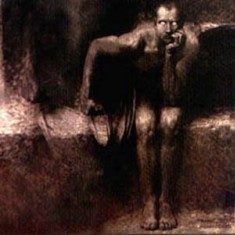
This article is part of a 6 part conversation – see also the following:
- Part 1: The nature of evil
- Part 2: Belief in hell
- Part 4: The nature of Satan
- Part 5: Fear of hell
- Part 6: Another few remarks
Part 3
Question 3: I don’t understand how the serpent in Genesis becomes Satan. There is no mention of Satan. The first time I came across Satan in the Old Testament is in Job. The angels present themselves to the Lord, and Satan also. There seems to be no problem with him joining the gathering. God asks him where he has been and he tells Him. It sounds like a normal conversation. As far as Job is concerned, I thought Satan had a good point. It is easy to be good when your life is going great. It’s when your life starts falling about that your faith is tested. (I’m not convinced Job passed that test.)
The next time I come across Satan is in the New Testament when Jesus is talking to Peter in Mathew 16:23, and he says, “Get behind me Satan . . .” Why does he say that to Peter? The second time Jesus refers to Satan is in Luke 22:31-32. “Simon, Simon, Satan has asked to sift you as wheat. . . ” (He is also talking to Peter.) It sounds like Satan has permission to test people.
Smithy, references in Revelation make the connection between the serpent (snake) in Genesis and Satan. Rev.12:9: The huge serpent was thrown down. That ancient snake, named Devil and Satan, the deceiver of the whole world, was thrown down to earth. Its angels were thrown down with it. (GW)
I think it would be reasonable to suggest that Satan as a spiritual being at one time used the form of a snake to manifest himself in a physical world.
You are correct to notice that reference to Satan in the Old Testament is very few. The mentioning of Satan in the story of Job, therefore seems very significant.
Job 1:7: The LORD asked Satan, “Where have you come from?” Satan answered the LORD, “From wandering all over the earth.” (GW)
Albert Barnes notes the following on this verse:
This inquiry does not appear to have been made as if it was improper that Satan should have appeared there, for no blame seems to have been attached to him for this. He came as a spirit that was subject to the control of Yahweh; he came with others, not to mingle in their society, and partake of their happiness, but to give an account of what he had done, and of what he had observed. The poetic idea is, that this was done periodically, and that “all” the spirits employed by Yahweh to dispense blessings to mortals, to inflict punishment, or to observe their conduct, came and stood before him. Why the inquiry is directed particularly to “Satan,” is not specified. Perhaps it is not meant that there was any “special” inquiry made of him, but that, as he was to have so important an agency in the transactions which follow, the inquiry that was made of him only is recorded. In respect to the others, nothing occurred pertaining to Job, and their examination is not adverted to. Or it may be, that, as Satan was known to be malignant, suspicious, and disposed to think evil of the servants of God, the design was to direct his attention particularly to Job as an illustrious and indisputable example of virtue and piety.
Trusting in God means doing so whatever the circumstances and that is never easy. I’m curious as to why you think Job didn’t pass his test.
Regarding Matthew 16:34 the PNT Commentary: Christ saw in the words of Peter a suggestion not so much of his as of Satan’s. It was a temptation to shrink from the work for which he came. It was the same temptation that called out from him the same rebuke once before (Mat 4:10).
Albert Barnes Commentary: There is no evidence that the Lord Jesus meant to apply this term to Peter, as signifying that he was Satan or the devil, or that he used the term in anger. He may have used it in the general sense which the word bore as an adversary or opposer; and the meaning may be, that such sentiments as Peter expressed then were opposed to him and his plans. His interference was improper. His views and feelings stood in the way of the accomplishment of the Saviour’s designs.
Whenever we experience suffering, our faith is evaluated for what it is. Satan can and does inflict suffering, but it is limited by what God would permit (as the story of Job has shown). What God permits Satan to do always has the purpose of producing greater faith (whether that is actualised or not). The difference is that what Satan does is for evil purposes, meaning his activity does not represent a test of faith in the sense that God allows it to become such a test.
Read further:
- Part 1: The nature of evil
- Part 2: Belief in hell
- Part 4: The nature of Satan
- Part 5: Fear of hell
- Part 6: Another few remarks

Leave a Reply